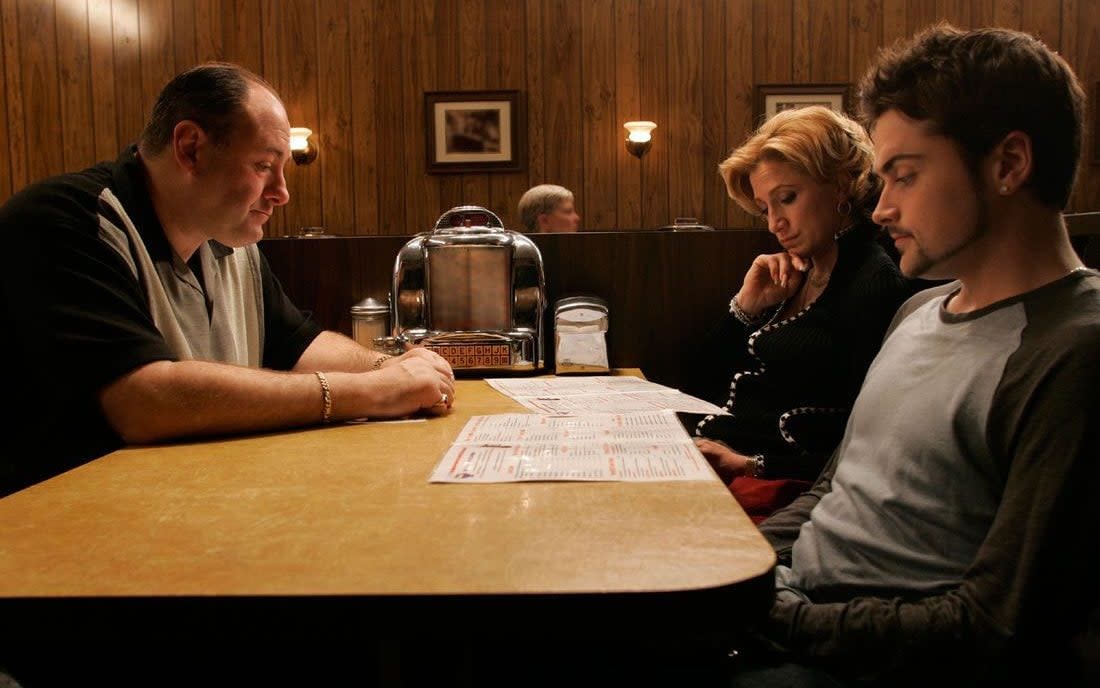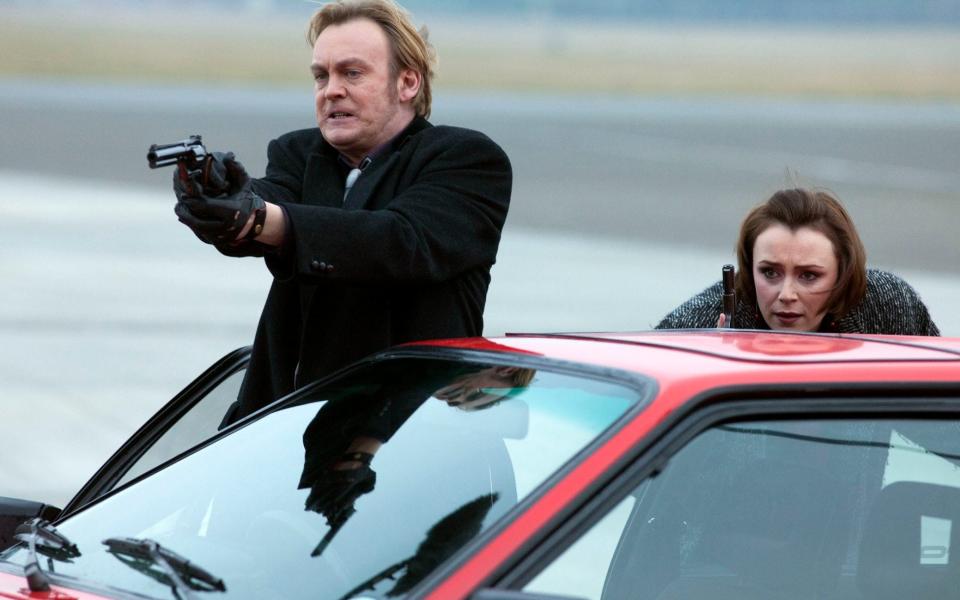How do you end a major TV drama?

It’s never easy to say goodbye, and that is particularly true in the world of television drama where ratings, budgets and studio politics are all likely to contribute to a show’s demise.
Of course, all writers and producers want satisfying endings, and none know when the clock is going to start running down on their creation. Some, like cult hits Lost and Gossip Girl, start with an intriguing premise and then have to keep it going as long as they are paid to do so, stretching their concepts until it becomes obvious that there’s no grand plan, that season by season, showrunners are making it up as they go along.
The problem is that decisions on a show’s future are usually made between productions, as the ratings come in. Therefore, most season finales must walk an almost impossibly thin line – tie up enough loose ends to create a satisfying journey, but leave just enough dangling should the call come to continue.
Sometimes a really big finale is clearly the result of months, if not years of careful planning. A highly successful series that has decided to quit while it was ahead has, in the past, yielded phenomenal results. One of the most lauded of all time is The Sopranos (2007), which closed out with a stomach-churning fade to black that leaves the viewers to decide Tony Soprano’s fate for themselves.
In the UK, one of the best in recent memory was Ashes to Ashes (2010), again ambiguous but no less powerful for that. We discover that Philip Glenister’s DCI Gene Hunt has been dead all along, and his fellow coppers are ghosts who all met their maker prematurely, existing in a sort of purgatory that resembles Eighties Britain. The programme ends with a monochrome appearance by Jack Warner’s TV copper Dixon of Dock Green, who was actually killed off in a 1949 film (The Blue Lamp) and then resurrected as a character by the BBC in the mid-50s. It’s a clever, ambitious and satisfyingly knowing payoff.

But what happens when you have neither the luxury of winding a show down naturally, or a hope of returning to the story? A mid-season cancellation, a rarity on either side of the Atlantic, forces writers and producers to be especially creative. Yvonne Grace was the executive producer presiding over the revival of ITV’s soap opera Crossroads when it was axed unexpectedly in 2003. She found that bringing an established soap to a juddering halt at short notice is no easy task.
“Once you’re involved in story and you’re involved in production the camera has to roll and roll and it can’t stop or you’re left with a blank screen,” says Grace, who now runs workshops on television writing. “I wasn’t prepared for the network to come to me and say ‘oh, the show’s axed, so you have to tie up the storylines.’”. A show like Crossroads, going out five days a week, would typically be juggling multiple story threads, some planned to play-out across an entire year; there was never going to be an elegant solution.
With just a month to wrap up, Grace’s team opted to bring the knife down using one of TV drama’s classic get-out clauses: it was all a dream. In the final scene, Jane Asher’s super-bitch hotel manager, Angel, is revealed to be a daydreaming supermarket check-out girl. “I remember getting a text from Steve Matthews, one of my writers. He said: 'We’re all in Nottingham, don’t worry, we’ve just been to the Robin Hood Experience and we’ve come up with the ending.’ I loved it, it was so punk!” Grace pauses for a second. “I think I must have been tired.” The blunt finale simply severed the story mid-flow: whole episodes, already filmed and edited, were doomed to go unbroadcast, their scripts and performances forever unviewed.
When the BBC teen drama Byker Grove was axed in 2006, mid-way through its 18th series, script editor Bryan Johnson had no intention of hanging his characters out to dry so callously. “You don’t want to end the story,” he explains, “I love those characters and I got a bit obsessed with ‘what happens to my characters once nobody is writing them?’ So I thought I’d give them the chance to end their own story.”
Johnson’s solution has gone down in history as one of the all-time bonkers TV finales: the teen denizens of Byker find out that they are characters in a television show, and that their creator has been told to end their story, but can’t bring himself to do it. Instead each character is allowed to write their own ending. Inhabiting his young creations, Johnson allowed his imagination to run riot.

Byker usually dealt with troubled home lives and adolescent growing pains; the finale has alien attacks, a tyrannosaurus rex and an army of zombies – all done on a miniscule standard episode budget – and concludes with two girls attempting to blow up the Grove to avoid it being sold to developers. The final scene ends in a whiteout, and we’re left unsure if the cast of misfits have been wiped from existence or simply had their youth club sold out from under them. It’s quite the big swing.
Back in the early 90s, the Jim Henson Company’s animatronic/puppet comedy Dinosaurs had initially been a big hit, but in 1994 found its strings cut mid-way through production of its fourth season. Writer Kirk Thatcher, who had helped conceive the show with Jim Henson in the months before his death, was charged with drawing things to a conclusion. Given that the show was about actual dinosaurs, living a distinctly 20th century life in the distant past, Thatcher knew the ending was going to have to be fairly apocalyptic.
“The whole concept of the way it would end was baked in from the very conception,” says Thatcher. “Jim Henson wanted to do a show saying that we’re the apex predator and whatever we do is good for us, screw everything else.” In the story, the schlubby protagonist, Earl Sinclair, through a series of well-intentioned blunders, manages to bring about the ice age that will wipe out his species. The episode ends with Earl explaining to his baby son that his father’s mistakes may have cost him a future. For a show that was massively popular with children, it was rather bleak. “What’s funny is that so many people come up to me and say ‘you ruined my childhood, you devastated me’ and in some ways I’m sorry, but also that was the point! We wanted to be true to what the show was originally about.”
Last year, the BBC announced the cancellation of the hospital drama Holby City, graciously allowing fans one final series and giving producers a year to close-out two-decades of storytelling. The wheels will be well and truly in motion behind the scenes. “They’ve got the time. They’ve got a year,” says Yvonne Grace, who also produced Holby during its BAFTA-nominated second season. “They’ll be looking at contracts and probably have to renegotiate some of them, and looking at how to tie it up well. Mind you, if they say it’s all a dream I will be straight on the phone.”
Holby City’s final episode will air in March.


